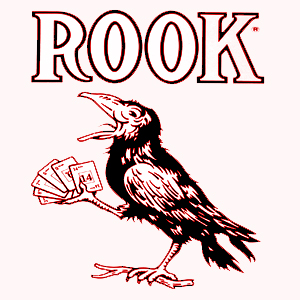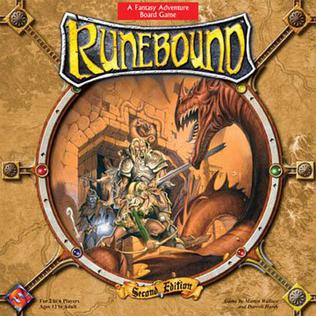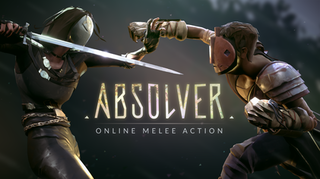
The Fantasy Trip (TFT) is a fantasy tabletop role-playing game designed by Steve Jackson and published in segments by Metagaming Concepts starting in 1977 and culminating in 1980. In 2019, Steve Jackson Games republished it as The Fantasy Trip Legacy Edition.

Doomtown: Reloaded is an expandable card game based on the Deadlands role-playing game. It was originally a collectible card game that ran from 1998 through 2001 and was revived as the Reloaded version in 2014. It was published by Wizards of the Coast (WotC) under license to Pinnacle Entertainment Group until January 2000, when WotC quit production and the license transferred to Alderac Entertainment Group.

Rook is a trick-taking game, usually played with a specialized deck of cards. Sometimes referred to as Christian cards or missionary cards, Rook playing cards were introduced by Parker Brothers in 1906 to provide an alternative to standard playing cards for those in the Puritan tradition, and those in Mennonite culture who considered the face cards in a regular deck inappropriate because of their association with gambling and cartomancy.
Several video games based on the Magic: The Gathering franchise exist for multiple systems. Some have attempted to translate the card game to electronic play nearly exactly; others have taken more liberties and drawn more from the setting than the actual rules of the card game. Benefits of successful video game versions of the card game include convenience, practice, and challenge. However, artificial intelligence for a game such as Magic is an extremely hard problem, and such software usually must be continuously updated to stay current with recently released card sets. Video game versions often expand on artwork, and may include unique cards that rely on randomness, effects which would be difficult or annoying to duplicate in real life.

The X-Files Collectible Card Game is an out-of-print collectible card game based on The X-Files fictional universe. The game was developed by NXT Games and published by the US Playing Card Company (USPCC) in 1996. The game was canceled in early 1998.

Runebound is a high fantasy adventure board game created by Martin Wallace and Darrel Hardy and published by Fantasy Flight Games in 2004. A second edition was published in 2005. A third edition was released in 2015. In Runebound, one to six players take the roles of adventurers who seek out quests. The quests are then resolved with either victory for the player, or a loss of some item. Each player is seeking quests and trying to gain experience which results in greater power and combat skill.

Magic: The Gathering is a video game published by MicroProse in March 1997 based on the collectible card game Magic: The Gathering. It is often referred to as Shandalar after the plane of Shandalar, where the game takes place. The player must travel the land and fight random enemies to gain cards, and defeat five wizards representing the five colors. The player must prevent one color from gaining too much power, and defeat the planeswalker Arzakon, who has a deck of all five colors. Adventure and role-playing elements are present, including inventory, gold, towns, dungeons, random battles, and character progression in the form of new abilities and a higher life point total. An oversized version of Aswan Jaguar was included in the game box.

Magic: The Gathering – Duels of the Planeswalkers is a video game based on the popular collectible card game of the same name, published by Wizards of the Coast. It was released on June 17, 2009.

Cyberpunk: The Collectible Card Game, also known as Cyberpunk, the CCG and Cyberpunk CCG, is an out-of-print collectible card game designed by Peter J. Wacks, based on R. Talsorian Games' dystopian near-future role-playing game Cyberpunk 2020.
The rules of Magic: The Gathering were originally developed by the game's creator, Richard Garfield, and accompanied the first version of the game in 1993. The rules of Magic have been changed frequently over the years by the manufacturer, Wizards of the Coast, mostly in minor ways. However, major rules overhauls have also been done a few times.

Sentinels of the Multiverse is a cooperative card game published by Greater Than Games and released at Gen Con 2011. Players control a team of comic book-style heroes battling a villain. Each player controls one or more heroes, while a villain and environment deck each run themselves. A given game includes 3 to 5 heroes, 1 villain and 1 environment, which can be mixed and matched to create a number of different scenarios. The core game comes with 10 heroes, 4 villains, and 4 environments. The board game has also been made into a video game.

The Elder Scrolls: Legends is a free-to-play digital collectible card video game, published by Bethesda Softworks for Microsoft Windows, iOS, macOS and Android in 2017.

Absolver is a martial arts-themed action role-playing video game developed by Sloclap and published by Devolver Digital for PlayStation 4, Windows, and Xbox One. In the game, players control warrior characters who fight other players and computer-controlled characters across the fictional land of Adal to prove their worthiness of joining the Absolver peacekeepers. The game's story is focused on the human development of the characters as they fight to find their place in the collapsed empire. The character's fighting moves are customized in a "combat deck" of cards, with each card assigned to a move. Players earn cards, equipment, and weapons by progressing through the game.

Slay the Spire is a roguelike deck-building game developed by the American indie studio Mega Crit and published by Humble Bundle. The game was released in early access for Microsoft Windows, macOS, and Linux in late 2017, with an official release in January 2019. It was released for PlayStation 4 in May 2019, for Nintendo Switch in June 2019 and for Xbox One in August 2019. An iOS version was released in June 2020, with an Android version released in February 2021.
Dark Cults is a two-player horror card game designed by Kenneth Rahman and published by Dark House in 1983.
A roguelike deck-building game is a hybrid genre of video games that combines the nature of deck-building card games with procedural-generated randomness from roguelike games.

Legends of Runeterra is a 2020 digital collectible card game developed and published by Riot Games. Inspired by the physical collectible card game Magic: The Gathering, the developers sought to create a game within the same genre that significantly lowered the barrier to entry. Since its release in April 2020, the game has been free-to-play, and is monetised through purchasable cosmetics. The game is available for Microsoft Windows and mobile operating systems iOS and Android.

Magic: Legends was an action role-playing video game based on the Magic: The Gathering collectible card game. It was developed by Cryptic Studios and published by Perfect World Entertainment. The game began an open beta for Microsoft Windows in March 2021, with plans for open release later that year as a free-to-play title on Windows, PlayStation 4, and Xbox One. On June 29, 2021, it was announced that development would cease. The servers were shut down on October 31, 2021.

Fights in Tight Spaces is a roguelike deck-building tactical game developed by British studio Ground Shatter and published by Mode 7 Games. The game was released in December 2021 for Microsoft Windows, Xbox One and Xbox Series X/S after an Early Access period that started in February 2021. Ports for Nintendo Switch, PlayStation 4 and PlayStation 5 were released in May 2023.

Trials of Fire is a roguelike deck-building game developed by Whatboy Games and released for Windows in 2021. It blends card mechanics with turn-based tactics in a fantasy world.

















